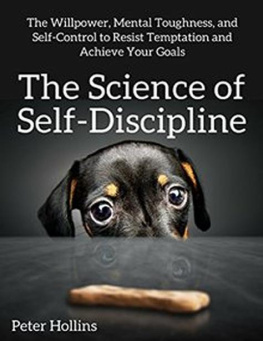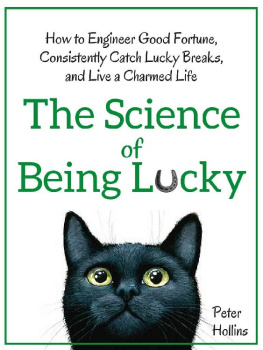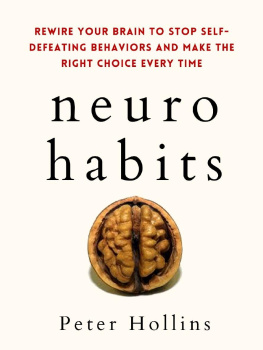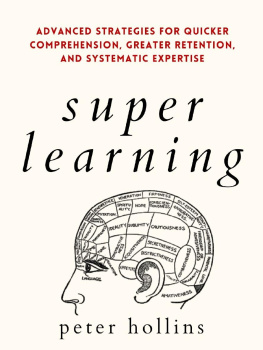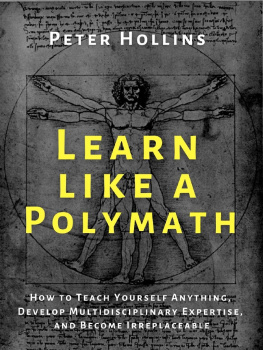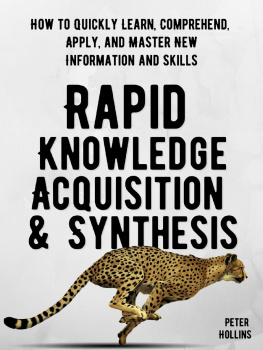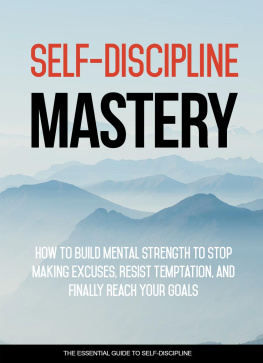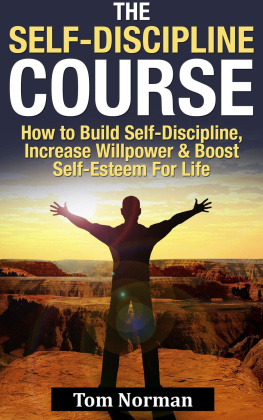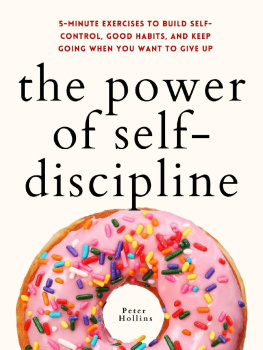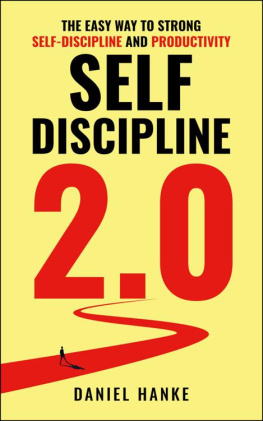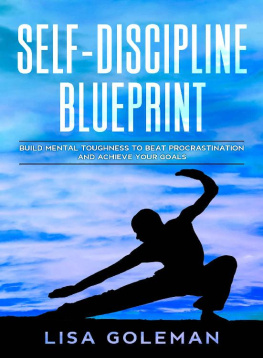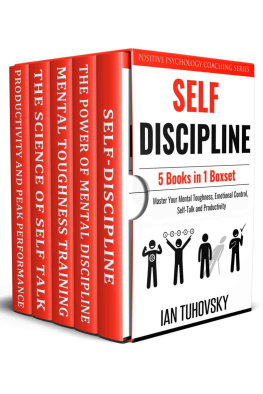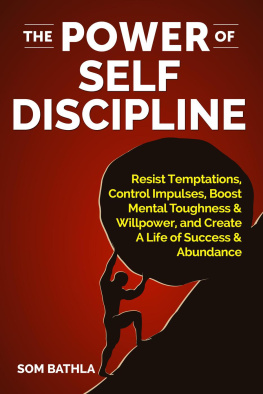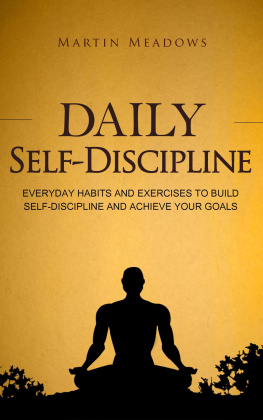The Science of Self-Discipline: The Willpower, Mental Toughness, and Self-Control to Resist Temptation and Achieve Your Goals
Introduction
When I was younger, I was bullied about my weight.
This might sound like a familiar story, but mine is a little bit different because I was constantly picked on for being skinny as a pole. Once when we had a large windstorm, I literally left my feet because of the wind.
Beanpole, feather, stickman, skeletor, the skeleton, boneboy. These were just some of the nicknames that were hurled my way, and luckily, none of them stuck for more than a few days. I thought when I went to university, the teasing would stop because we werent children anymore; we were real adults living on our own and running our own lives. Now, there are a few fallacious parts of that statement, but most relevant to this story, the teasing only intensified. I had severely underestimated the ego of the male aged 1822 years.
So I spent my first year of university hearing many of the same nicknames I had heard when I was younger. They really hadnt evolved much since. When I moved into the dorms my second year of university, I was lucky enough to be randomly assigned a former football player as my roommate. This roommate, Mike, went on to become a fairly successful personal trainer, which is relevant to the story because I believe I was his first guinea pig. I told him I wanted to gain weight and stop being teased, and he made it his goal that year to make my wish a reality.
We discovered that I simply didnt eat enough, even when I thought I had gorged myself three times in one day. We tracked calories rigorously and found that I needed, on average, an extra 1,000 calories a day to gain weight at a rapid but healthy pace. If youre wondering where self-discipline comes into the story, its right here. Unlike many people struggling with weight, I had to discipline myself to eat on schedule five times a day. Yes, for some of you, this sounds like a fantasy. But for anyone skinny trying to gain weight, it is just as much a nightmare as only being able to eat one meal a day. Its veritable torture trying to stuff yourself multiple times a day, only to have to do the same thing the next day and the next.
I probably would have given up after the first week if it werent for Mike. Luckily for me, we were in most of the same classes, and he was my constant companion in reminding me to eat, asking me how much I had eaten that day, and even taking me to get ice cream when I still needed calories. I didnt know it at the time, but I had created an environment for myself that forced self-discipline. Whenever I didnt have it myself, I had Mike to push me and remind me exactly what I was working so hard for.
Two months later, I had gained 11 pounds. The journey continued for years, but this was my first introduction to the intentional exercise of self-discipline. I saw where it could get me, and I now see that its a necessary trait in everything we do. For whatever goal you want to achieve, there is discomfort along that path. Self-discipline drives you through this discomfort and allows you to achieve and attain. Its an essential component of mastery, and nothing great was ever accomplished without it.
But it doesnt live within a vacuum. Oftentimes, we have the best of intentions, only to be distracted by an errant shiny object or dog. Just grinding your teeth and pushing isnt always enough. In this book, I discuss and teach how to increase your baseline level of self-discipline, as well as how to engineer your life as to not need self-discipline at every twist and turn.
You might get lucky just like me and already live in close proximity to someone that enforces your sense of discipline whether you like it or not. But if you dont, there are countless ways to decisively take control of your life and to no longer fall prey to your wayward impulses and distractions. Self-discipline is not only the goal, but also the journey.
Chapter 1. The Biological Basis of Self-Discipline
Noted author and speaker Jim Rohn once said, We must all suffer one of two things: the pain of discipline or the pain of regret. Throughout your life, you can make a choice as to how you suffer; discipline is usually what keeps you from what you truly want.
Having self-discipline and willpower is the ability to do difficult or unpleasant things because those things are better for your well-being in the long run. That could mean waking up early to exercise when you would rather press the snooze button, or maybe resisting the temptation of a sugary snack that you know will result in an energy crash an hour later. Whatever you need to do in order to accomplish your goals and to be fulfilled, discipline will be a crucial skill in that process. On the other side of the spectrum, a life devoid of discipline is necessarily one filled with regret because nothing worth doing will ever come to fruition.
The focus of this book is to ingrain self-discipline and willpower as an unconscious habit to ensure that you can consistently achieve your goals and live without regret. Waking up five minutes earlier in the morning may not mean much on a daily basis, but there is a hugely cumulative effect that leads you to the path of success. Just like the athlete warms up and stretches her muscles before a race, self-discipline is a quality to be honed.
The Biological Basis of Self-Discipline
First, it is important to understand how self-discipline manifests biologically. Without understanding what causes, diminishes, or strengthens it from a neurological perspective, we are unable to act to benefit it. It would be like trying to treat a sickness without understanding what caused it. Pinpointing the physical origins of complex behaviors in the brain is a difficult and ongoing process for neuroscientists and psychologists. You wont find the words impulsivity and willpower etched into specific places in our brains, nor is there an easy chemical hack for sustainably altering those functions.
Its estimated that the average human brain has some 100 billion neuronsthe tiny cells that travel through our brain circuitry to produce our thoughts and behaviors. Thats about the same number as there are stars in the Milky Way Galaxy, and so its no wonder that scientists have only just begun to understand the connections between neurons and the outcomes they generate. Recent experiments have begun providing some clues about the inner workings of our minds.
Todd Hare and Colin Camerer in 2009 used functional magnetic resonance imaging machines, or fMRIs, in order to examine the brain activity that takes place when people are performing certain tasks requiring elements of discipline and self-control. Through this, they were able to see increased activity in a region of the brain called the ventral medial prefrontal cortex while the studys participants were deciding between accepting a large monetary reward in the future or a smaller reward immediatelythe classic struggle of delayed gratification and willpower.
The dorsolateral prefrontal cortex another region of the brains decision-making hubwas also shown to play a role when we are weighing our future and immediate options. There was a correlation between higher activity in this region and choosing options that had better long-term consequencesthe larger but delayed monetary reward, or the healthier food item, for example.

